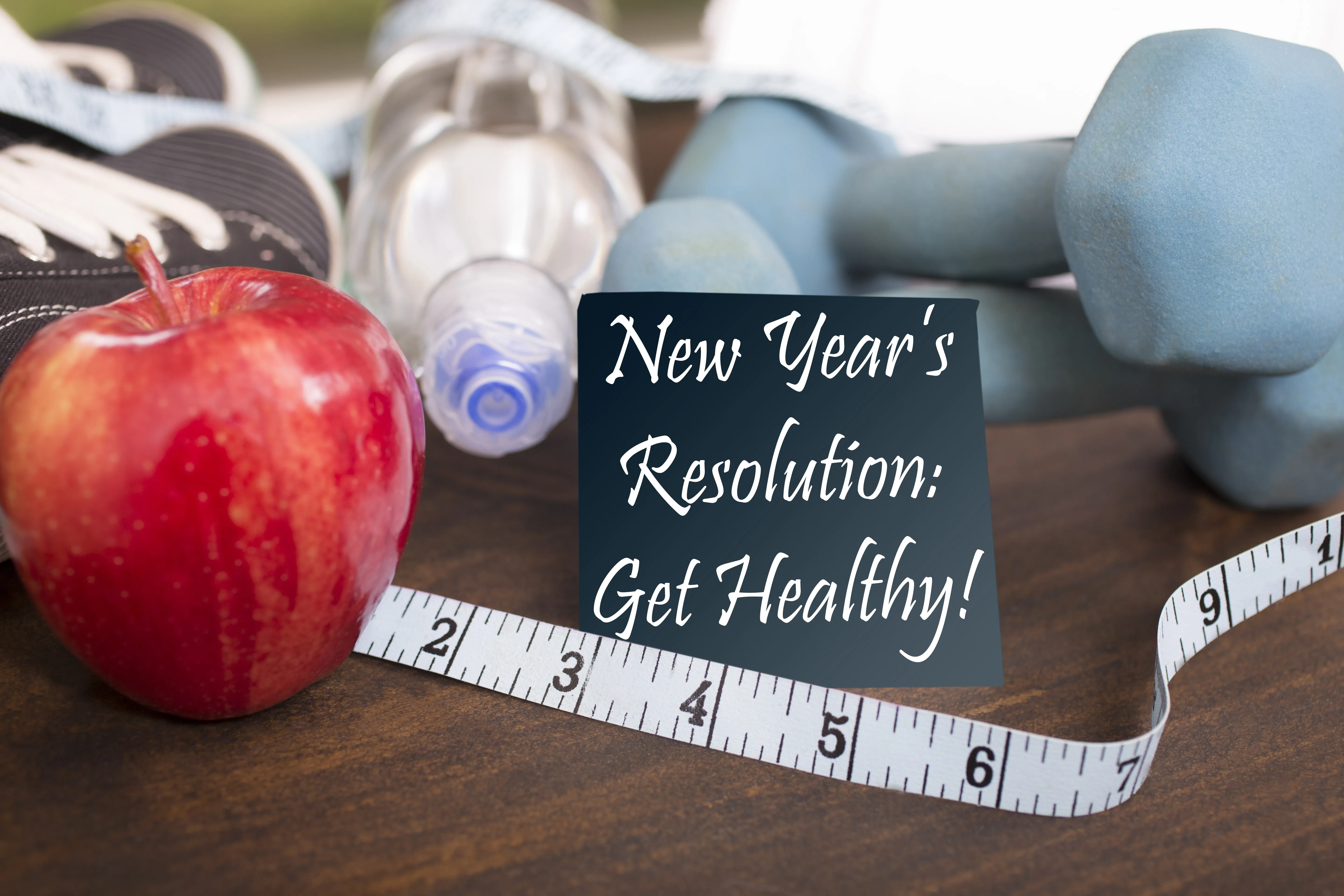The Best Resolutions To Make For Your Health
Instead of weight loss, make your New Year’s resolution about your overall health. Here’s a quick primer on a few things you can do to improve yours this year.
Choose healthful fare
Add vitamins to your plate by picking more whole grains, fruits and vegetables this year. Limit foods like sweets and chips and avoid sugar-sweetened beverages; opt for water instead. Choose lean cuts of meat from the loin or round, and pick plant fat over animal fat. Use skim or one percent milk and add flavor without adding salt, butter and sugar by utilizing herbs. Eating healthier lowers your risk of developing diabetes, heart disease and cancers.
Be active
You don’t have to join a gym to get fit. Start with 10 minutes of walking or aerobic activity, like dancing or riding a bike, that can easily increase your heart rate. By starting with 10 minutes of activity per day, you are up to 70 minutes of exercise in just the first week. Slowly work your way up to 150 minutes per week. Being active lowers your risk of a heart attack or stroke, reduces your risk of developing diabetes and high blood pressure. As a bonus, it also has shown to improve mood.
Get adequate sleep
Aim for a goal of 7-8 hours of quality sleep per night. Sleep deprivation can cause weight gain, decrease work performance and increase your risk of high blood pressure, heart disease, obesity and diabetes. Practice good sleep habits by avoiding screen time prior to bed, waking and retiring at the same times each morning and night, creating the right space (quiet, dark and comfortable), avoiding caffeine, nicotine and alcohol and eating right. Adequate sleep will give you more energy, boost your immunity and decrease stress.
Reduce your stress
Assess your stressors and see what changes you can make to give you peace in the new year. Take a new route to work, discuss what’s really bothering you with your loved ones or supervisor and develop a plan to make improvements. If your biggest stressor is your finances, ask for help from your creditors or your bank. Make time for fun: go bowling, play golf, ride your bike, walk at the beach or any activity you consider relaxing. Reducing stress has been shown to increase energy and decrease anxiety and depression; stress reduction can also improve work productivity and result in less work absences.
Check-in with your physician
The beginning of the year is a good time to plan your annual visits to your primary care doctor, dentist, ophthalmologist and more. Scheduling your annual preventative screenings is also very important. Staying on top of your health requirements can keep you healthy long after the new year.
Sip less
Limit your alcohol intake. Alcohol can contribute to weight gain, increase your risk of high blood pressure, and cause heart disease or memory loss. Alcohol intake should be limited to one drink per day for women and two drinks per day for men. A standard drink is 12 ounces of beer, 5 ounces of wine or 1.5 ounces of liquor. Reducing your alcohol consumption has been shown to increase energy levels and mental alertness, improve relationships with loved ones and reduce missed days of work. If you need help with alcohol abuse, visit the AA website to find your local Alcoholics Anonymous resources.
Quit smoking (and any tobacco products)
Most people are aware that tobacco can cause cancers of lungs, throat, liver, stomach and kidneys. Smoking also increases your risk of heart disease, diabetes and chronic obstructive pulmonary disease. Second-hand smoke is also dangerous to the health of your loved ones. It’s time to quit once and for all. Start your tobacco-free path by calling 1-800-QUIT-NOW. If you’re over 55 and smoke (or have previously smoked) at least one pack of cigarettes per day, you may qualify for a life-saving, early detection screening.
Practice mindfulness
Mindfulness is maintaining a moment-by-moment awareness of our thoughts, our feelings, our bodily sensations and our surroundings. Mindfulness increases our positive emotions while reducing our negative thoughts. It positively affects our brain by boosting our memory, learning, emotional and empathic areas of the brain. Mindful eating can also fight obesity, it encourages us to eat healthier and appreciate each bite we put in our mouths, leading to eating less. For more information on mindfulness, visit this site.
Opt for safety
Wear your seatbelt, don’t drink and drive, avoid excess sun exposure and avoid texting or surfing on your telephone when driving. Each day in the United States, approximately nine people are killed and more than 1,000 injured in crashes that are reported to involve a distracted driver. When it comes to taking risks, be conservative for your health.
Practice the power of positivity
Research shows a healthy and positive attitude can build a healthier immune system and boosts overall health. Your body believes what you think, so focus on the positive.
Treat each day as a gift and practice the above to live your best year ever.

Tracy has more than 25 years experience in the nutrition field and fitness industry. She specializes in diabetes and weight management. She obtained her master’s degree in nutrition and physical activity from James Madison University in Harrisonburg, Va. and her bachelor’s degree in nutrition and kinesiology from Norfolk State University in Norfolk. Tracy is a Certified Diabetes Educator and is a Certified Specialist in Obesity and Weight Management. She created and runs the My Healthy Weigh weight management program for The Lifestyle Health and Fitness Center. She is a member of the Academy of Nutrition and Dietetics and The American Association of Diabetes Educators. Tracy is passionate about helping people to live healthier lives through nutrition and exercise.